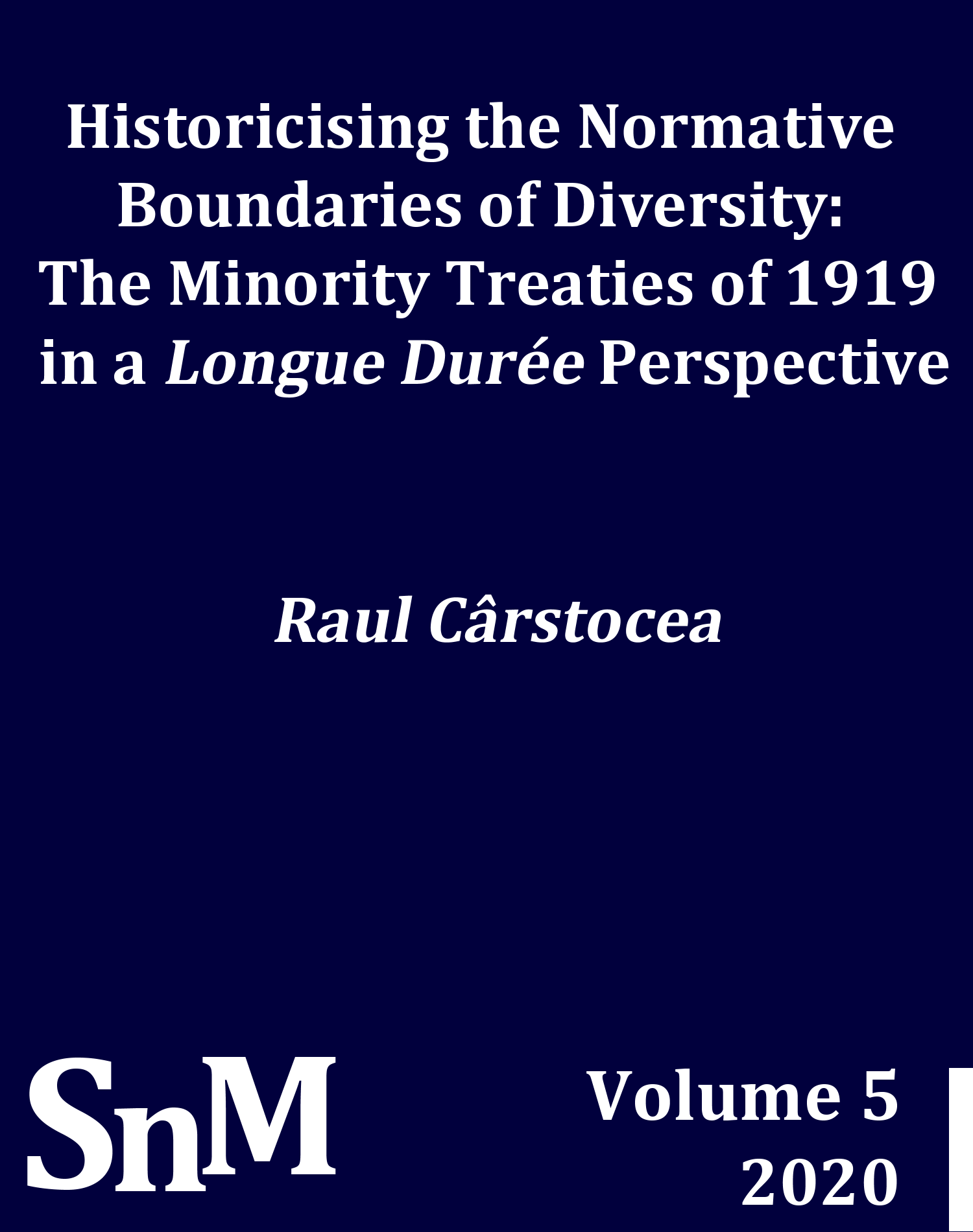Historicising the Normative Boundaries of Diversity: The Minority Treaties of 1919 in a Longue Durée Perspective
Keywords:
nationalism, imperialism, minorities, diversity, Eastern EuropeAbstract
The article accounts for the specific form a certain legal and, indeed, normative understanding of diversity informed the so-called Minority Treaties of 1919 by historicising the evolution of certain interlocking discourses over the remit of ‘rights’, as well as the identity of their holders. It seeks to account for why certain groups (national minorities) rather than others were singled out for protection and why the rights they were given took the form they did (cultural and linguistic) by positioning them in the context of broader debates within which they were embedded. I thus argue against reading the Minority Treaties from a ‘presentist’ perspective that not only retrojects a certain teleological narrative that tends to read them along the familiar lines of ‘progress’, but bears the danger of naturalising certain categories – such as ‘the nation’, ‘the nation-state’, or ‘nationalism’ – in light of their subsequent prominence, which consequently acquires a certain air of inevitability. To do so, the article first discusses normative conceptions of ‘diversity’ in a longue durée perspective, arguing for the emergence and contestation of hybrid and combined models of managing ‘difference’ during the long 19th century, prompted by the opposing tractions of efforts at homogenisation and hierarchisation. Second, it places the Minority Treaties in their immediate 1919 context, arguing that the form they took was significantly influenced also by contingent and extraneous contemporary factors, such as the expansion of the franchise after World War I or the sustained attempts to contain socialist revolutionary activity. The paper illustrates these developments by making specific reference to the situation of the Jewish minorities in Central and Eastern Europe as a case study.

Published
How to Cite
Issue
Section
Copyright (c) 2020 Raul Cârstocea

This work is licensed under a Creative Commons Attribution 4.0 International License.
Authors who publish with this journal agree to the following terms:
- Authors retain copyright and grant the journal right of first publication with the work simultaneously licensed under a Creative Commons Attribution License that allows others to share the work with an acknowledgement of the work's authorship and initial publication in this journal.
- Authors are able to enter into separate, additional contractual arrangements for the non-exclusive distribution of the journal's published version of the work (e.g., post it to an institutional repository or publish it in a book), with an acknowledgement of its initial publication in this journal.
- Authors are permitted and encouraged to post their work online (e.g., in institutional repositories or on their website) prior to and during the submission process, as it can lead to productive exchanges, as well as earlier and greater citation of published work (See The Effect of Open Access).
